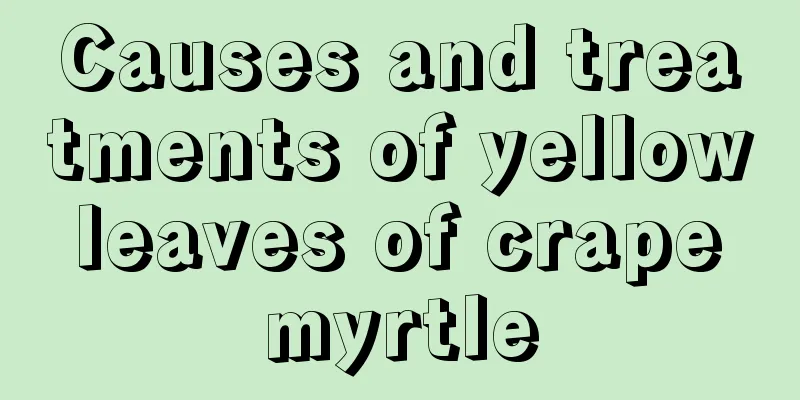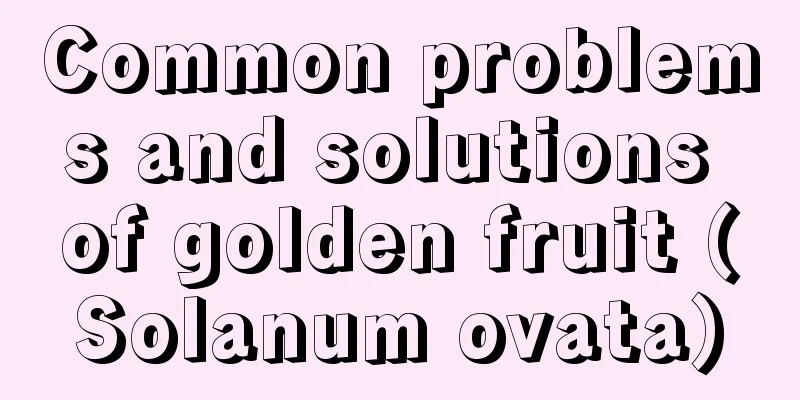What month is the season for yellow peaches to mature?

|
Yellow peach is a fleshy peach with golden yellow color all over. It is not only outstanding in appearance, but also has a delicate, sweet and juicy taste, and is therefore very popular among consumers. So what month is the season for yellow peaches to mature? Let’s learn more about it below. What month is the season for yellow peaches to mature? Yellow peaches are summer fruits that usually mature from mid-July to early August, but some early-ripening yellow peaches are ripe in late June. Therefore, its specific maturity season should be determined according to factors such as origin and variety. Key points for management of yellow peach during its maturity period 1. Fertilization management (1) Fertilization during the fruiting period: Nitrogen fertilizer is used as the main fertilizer, supplemented by potassium fertilizer to meet the needs of fruit enlargement. (2) Post-harvest fertilization: Supplement fertilizer promptly after harvest. Apply 0.25 kg of urea per plant during the initial fruiting period and 0.5 kg of urea per plant during the peak fruiting period. 2. Moisture management During the fruit-bearing period of yellow peaches, if it is not very dry, watering once will be enough to prevent the yellow peaches from falling off. During the fruit expansion period, the water demand increases. In case of high temperature and drought, drought-resistant irrigation must be carried out in time. 3. Fruit management (1) Fruit thinning: Yellow peaches suffer from severe flower and fruit drop, with three physiological fruit drop events. Fruit thinning is necessary, which is done in two stages. The first stage is in late May and early June to thin out obviously small fruits and overcrowded fruits. The second stage is in mid-June to late June. The fruit thinning standard is generally to leave 4 fruits on long fruit branches, 2 to 3 fruits on medium fruit branches, and 1 fruit on short fruit branches. (2) Pollination: During the flowering period of yellow peach trees, if there are adverse climatic factors such as low temperature, rainy weather, etc., it will affect the activity of bees and the cracking of anthers, resulting in poor pollination. At this time, artificial assisted pollination can be used to increase the fruit setting rate. (3) Bagging: Bagging is usually done after the second fruit thinning, and should be done in the morning or afternoon on a sunny day. 4. Pest and disease control Pay attention to check diseases on leaves and fruits, such as peach wilt, brown rot and anthracnose. If any disease is found, the diseased branches and leaves should be cut off immediately to prevent the spread of the disease. 5. Picking at the right time Generally speaking, yellow peaches taste best when picked within a week after ripening. When picking, be sure to stand under the tree, straighten the fruit pickers or scissors , aim at the target fruit, and gently cut. In general, the ripening season of yellow peaches is mainly concentrated in summer. Paying attention to the relevant management work during its ripening period can ensure the quality and yield of yellow peach fruits and improve the economic benefits of the orchard .
|
<<: What month are cherries in season?
>>: When is the best time to transplant dragon fruit?
Recommend
What to do if succulent plants melt water
Succulent water Simply put, water erosion is when...
Rubber tree cultivation methods and precautions
1. Soil Rubber trees should be grown in fertile, ...
Is loess or nutrient soil better for camellia? Special soil formula and preparation method for camellia
Is it better to plant camellia in nutrient soil o...
Can crabapple cuttings survive?
1. Can it be inserted alive? Begonia cuttings can...
Can petunias be grown hydroponically?
Petunia can be grown hydroponically, the method i...
Will the striped Haworthia bloom?
Will the striped Haworthia bloom? Haworthia stria...
Clivia pictures and prices
1. Clivia miniata The flowers of the Clivia minia...
Can gardenia be pruned? When is the best time to prune it?
Gardenia pruning Gardenia can be pruned twice a y...
Can roses be grown indoors?
Can roses be grown indoors? Roses can be planted ...
How many kilograms of peanuts are produced per mu?
Peanut yield per mu The annual yield per mu of pe...
Cutting propagation method of Schefflera chinensis
1. Prepare the soil Choose some cleanly sieved ri...
Iron ball sowing method
1. Prepare the soil in advance Before sowing and ...
How to grow Dancing with the Wind hydroponically? Does it like sunlight?
1. Water culture and maintenance methods 1. Chang...
When do daffodils bloom?
When does it bloom? Flowering time Narcissus, als...
Seed propagation of Digitalis
Preparation for sowing and propagation of Digital...









